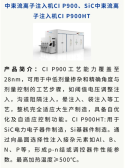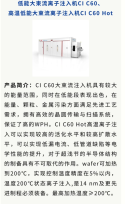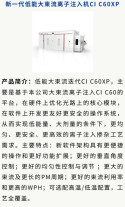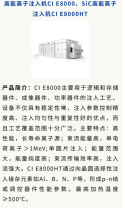Based on STCO integrated system design to expand the ecosystem, Core Semiconductor and Kylin Software have completed the operating system level
Coreplus Semiconductor Technology (Shanghai) Co., Ltd. ("Coreplus Semiconductor") and KylinSoft Co., Ltd. ("KylinSoft") recently announced that they have completed mutual product compatibility certification. Coreplus Semiconductor's diverse "chip-to-system" multiphysics simulation and system verification EDA products now run efficiently and stably on the Kylin Advanced Server Operating System (Industrial Edition) V10, marking the successful expansion of Coreplus Semiconductor's "STCO Integrated System Design" philosophy into the operating system layer.
By 2025, the information and innovation industry will enter a period of comprehensive development. According to CCID data, the penetration rate of domestic EDA has been less than 10% in the past two years, and over 85% of high-end manufacturing companies face the risk of overseas tool supply disruptions. The science and technology industry planning during the 15th Five-Year Plan period has elevated industrial software autonomy to a strategic level.
As a domestic expert in integrated system design EDA, Xinhe Semiconductor has seized the important development opportunities of domestic EDA companies and has carried out in-depth collaborative cooperation with Kylin Software. This mutual certification covers Xinhe Semiconductor's five key EDA platforms:
Metis, a 2.5D/3D advanced packaging SI/PI simulation platform, addresses the complex electromagnetic coupling issues brought about by interposer high-density interconnection and TSV vertical integration, providing full-link electromagnetic field rapid simulation and high-precision model extraction capabilities.
Notus, a board-level multi-field collaborative simulation platform, provides SI/PI collaborative analysis, topology extraction, and electrical-thermal-stress joint analysis at the package and board levels in high-speed, high-frequency design. It can quickly analyze signal, power, temperature, and stress distribution, accelerating user design iterations.
ChannelExpert, a high-speed system verification platform, provides a universal verification platform for high-speed channel signals across the entire signal integrity chain, encompassing both time and frequency domains. This platform enables fast, accurate, and easy evaluation, analysis, and resolution of high-speed channel signal integrity issues.
Hermes3D, a three-dimensional full-wave electromagnetic simulation platform, provides extraction of package board-level signal models, electromagnetic simulation of arbitrary three-dimensional structures, RLGC parameter extraction, and board-level antenna simulation.
RF EDA Design Platform XDS: This RF system design platform targets chip-package-module-PCB, supports a PDK-driven field-circuit co-simulation process, and embeds a 3D full-wave fast electromagnetic simulation engine based on the method of moments and finite elements, supporting cross-scale simulation from chip to package.
The above-mentioned Xinhe Semiconductor EDA platforms have all completed the Kylin Advanced Server Operating System (Industrial Edition) V10 certification, covering the mainstream design needs in China from chips to packaging to systems, and meeting the urgent needs of enterprises in data centers, communication base stations, automotive electronics, smart terminals, industrial equipment, new energy, Internet of Things and other fields for full-chain independent control.
This mutual certification is a significant example of collaborative innovation in domestic industrial software. Xinhe Semiconductor, leveraging the Kylin operating system, has achieved localized deployment of key EDA components, helping high-end design and manufacturing companies reduce their reliance on overseas EDA tools. Kylin Software, in turn, has further strengthened its support capabilities for the industrial application ecosystem. Going forward, both parties will continue to deepen their technological research, helping more companies shorten R&D cycles and improve innovation efficiency. This will drive the full autonomy of the "chip-EDA-OS-application" chain, providing the underlying technical support for the intelligent upgrade of China's manufacturing industry.





